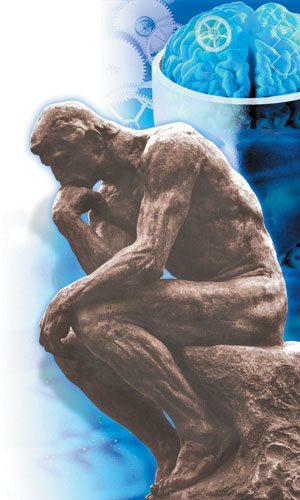Young Man, Enjoy The Ideological Adultery
Young Man, Enjoy The Ideological Adultery
Posted February. 20, 2004 22:47,

Written by Tachibana Takashi and translated by Lee Kyu-won.
396 pages. 13,000 won. Published by Cheonguhram Media.
You will be thrown into the forefront of the 21st century. However, your brains are filled with the 19th century, and you know little about the 20th century.
This is the first remark the author, Tachibana, a prolific lecturer and writer of philosophy, biology, physics, neuroscience, and astronomy, makes in a lecture for a new class at Tokyo University.
According to his 1998 statistics, most of what Japanese high school students learned in their natural science classes is what is found in 19th century. Quantum mechanics, the theory of relativity, and molecular biology, 20th century scientific accomplishments the students should study, were not covered in their curricula.
Tachibana Takashi, a self-acclaimed professional generalist, wrote this book, based on The Presence of Humans, his lecture series at Tokyo University in 1996. He ran an enhanced version of the lecture series in the monthly magazine Shincho from June 1996 through June 1997. He retouched the articles and published them in book form in 2000.
-After 20, You Should Be Responsible for Your Brain
The author, most of all, proposed that freshmen of Tokyo University should commit ideological adultery as much as possible. It will make their way of thinking more flexible and in turn enrich their lives. He repeatedly illustrated how rigid ways of thinking and ideological biases had made many people sink into the depths of misery. He added, Japanese society is where the majority wouldnt be afraid to cross the street against red lights if all did it together. He also stated that they say you are responsible for your face after 40. However, Id like to say you are responsible for your brain after 20.
The author, to show the human brain has yet to grow rapidly and flexibly after 20, extensively explained the structure and inner workings of the brain in 50 pages. Over the wall of the college there is a frontline. If I liken it to a battlefield, it is the trench where you should crawl and fire your gun 24 hours a day. Casualties take place everyday. Will you be ready for this after four years?
-Knowledge Is Knowing the Relationship Between the World and Myself.
He suggests 21st century worriers should study natural science. To survive in the 21st century, the century of science, to study natural science is indispensable. However, this does not just imply the acquisition of instrumental knowledge.
He maintains that what is most important in human history is neither political nor economic history, but the history of knowledge. According to him, human knowledge stems from the questions of what is Man? and what is the world surrounding Man? All in all, human knowledge is the understanding of Mans self, others around him and the world. Natural science is needed to get a general and articulate understanding of this relationship.
He pursues the world of knowledge by crossing over the intellectuals of the present and the past, including René Descartes, Thomas Henry, Albert Einstein and Richard Feyman, and his theory is aimed at understanding the relationship as an intact entity.
Volume two of this book is titled Evolvement and Cosmology. Ahead of Volume one, Disciplined Brain, is a long journey to knowledge.
Hyoung-Chan Kim khc@donga.com







